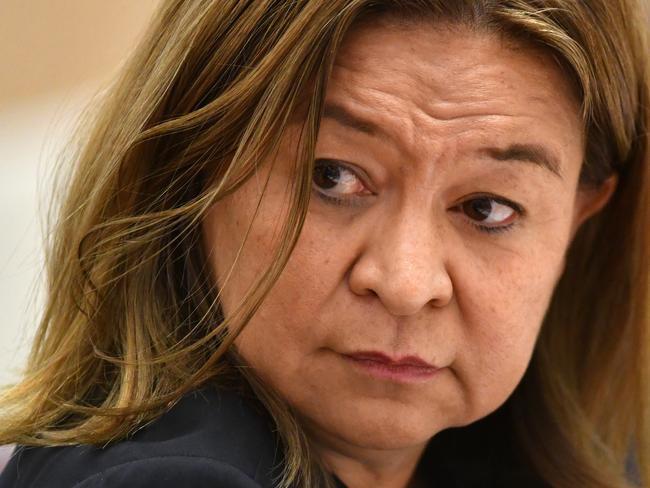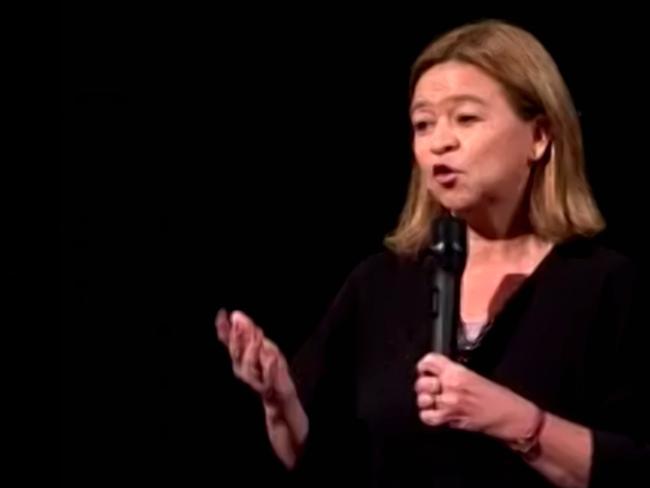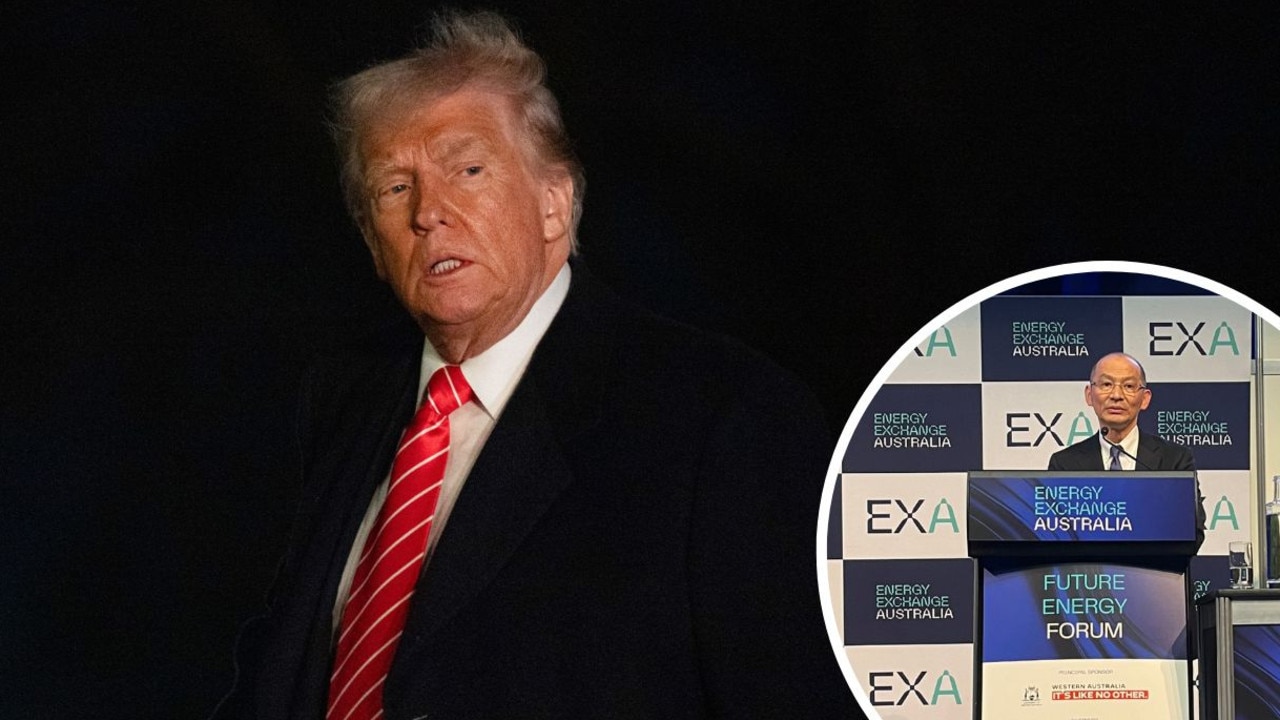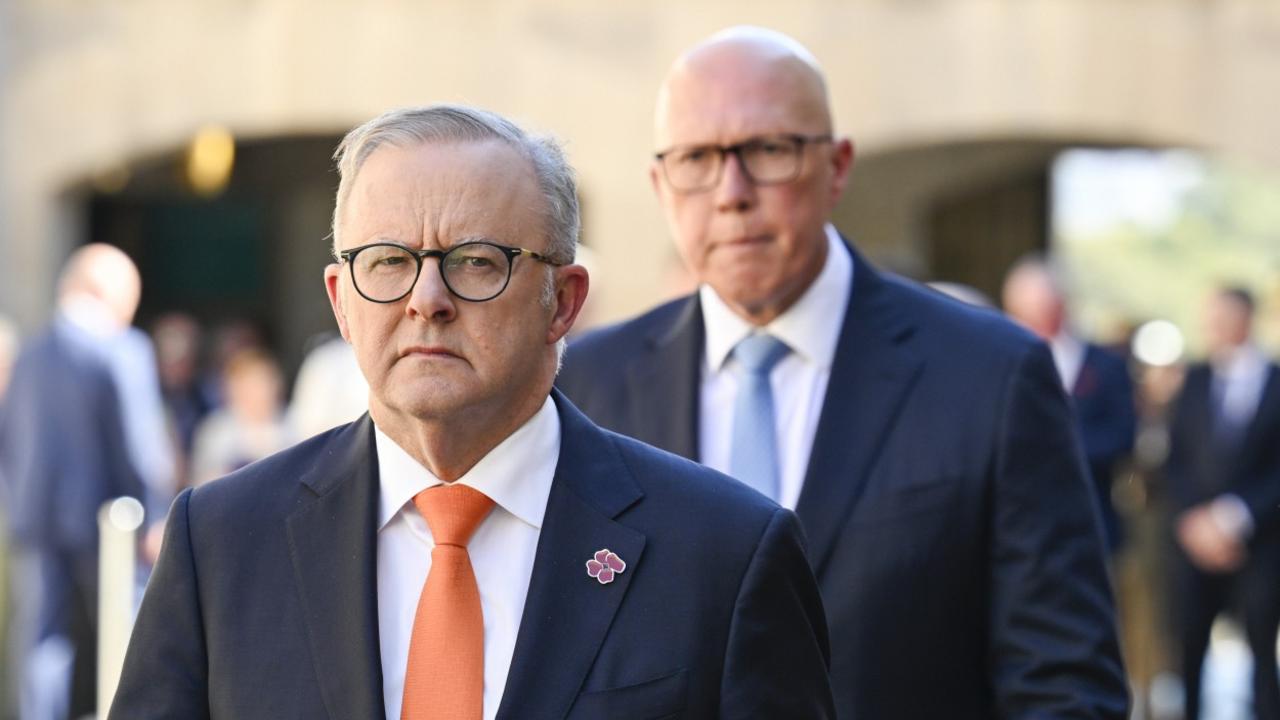Sharri Markson: The dark web of our public broadcaster
MANAGING director Michelle Guthrie admits the ABC is spending $360K a year to lift Google rankings and sabotage commercial media, says Sharri Markson.
Opinion
Don't miss out on the headlines from Opinion. Followed categories will be added to My News.
WHAT is one of the greatest threats to quality journalism in Australia?
It could very well be the ABC and its deliberate sabotage of commercial media organisations, all the while complaining perpetually about a lack of funding.
The ABC is the boy who cried wolf. And never again should the Australian public fall for its pathetic wailing over a lack of funds.
The ABC’s managing director Michelle Guthrie has admitted the public broadcaster is spending $360,000 a year of taxpayer dollars buying up search terms to lift its Google rankings.
That’s equivalent to five journalists on $72,000 a year.
And it’s more than a quarter of a million a year spent knowingly crippling its commercial media rivals, who have to compete for subscriptions and advertising dollars to survive by paying to lure readers to its own websites. Think back to the 2014 when there was a hint of a budget cut at the ABC. There was uproar. Protests. Social media mayhem.
Friends Of The ABC sent out bolshie press releases. ABC stalwarts whipped up community fear. Save The ABC banners sprang up.
A six-year old girl named Isabelle even sent a $40 cheque, proceeds from a bake sale, to the ABC, so convinced was she that the public broadcaster was about to be shut down.
Mark Scott then waved around that cheque proudly. But the ABC was never under threat.

Its budget has only ever been on an upward trajectory over the past decade. Have a look at the figures.
Aunty’s funding increased from $865,540 million in 2008 to $991,963 million in 2011 to $1.02 billion in 2014 to $1.04 billion this year — and is projected to rise to $1.07 billion in 2019.
Not only has the ABC never been starved for funds, to the contrary it has so much funding it seems that it can afford to waste it.
Think of the despicable 30-minute Radio National documentary that aired last month on a character from the ’80s who enjoyed being urinated on in gay nightclubs. Or think of the millions spent on consultants and of the exorbitant salaries of its talent.
Its funding has only ever grown.
And so, the public broadcaster towers in the Australian media landscape like a lazy giant, while other media stables have to fight and innovate.
When I first revealed the ABC’s practice of buying up search terms, and wrote a story on it in October 2014, the ABC flat out refused to reveal how much they were spending on buying up search terms.
Then, the ABC had bought up the term Gough Whitlam when the former PM had passed away.
At the time, I guessed the ABC was spending $10,000 a month. Turns out, that figure is three times as high.
Lifestyles are changing, with more Australians reading news on their mobile phone when they wake up, and also online at work.
In our instantaneous culture, convenience is the order of the day for time-poor Aussies. People love newspapers — their scoops, bold attitude and humour — but need their news immediately, from literally the moment they wake up (or at least I do!).

For some bizarre reason, Aussies think nothing of handing over a few coins to buy a newspaper, but are disinclined to just as quickly enter their credit card details online for the same content.
For media companies to thrive into the future, Australians need to pay for news online, just like they paid for the newspaper.
The behaviour change is slowly happening, with the number of subscribers growing to papers such as The Daily Telegraph and The Australian, and even my competitors over at Fairfax.
But it’s tough to ask people to pay for news online when the ABC is giving it away for free.
There has been little focus on the ABC online, which, similarly, reports on news that has originated in other media outlets, and then drives consumers away from those outlets. And while Fairfax and News Corp and television and radio stations are bound by outdated media laws that limit activity across various platforms, the ABC is essentially bulldozing its competitors by operating across television, radio and digital platforms where it acts virtually as an online newspaper.
In other words, the taxpayer is paying to drive business away from private businesses like News Corp and Fairfax, Yahoo and Ninemsn.
Not only is the Australian government failing to help Aussie media companies, it’s damaging them by allowing the ABC to operate in the digital space and use disgraceful tactics like buying up search terms.
The selfishness is atrocious.
There’s a strong argument that the ABC should not have an online site at all.
But listen to this. Michelle Guthrie said in her opening statement at Senate Estimates on Wednesday night that “the national broadcaster should not be used as a scapegoat for the problems that confront others in the digital media scape”.
So says the woman authorising traffic to be directed away from the other media outlets.
The hide!
The ABC’s charter stipulates it must “take account of the broadcasting services provided by the commercial and community sectors of the Australian broadcasting system.”
This is not happening.

Guthrie also announced she was spending $2.9 million for coverage of the arts, science and education, with nine new digital positions across arts and science.
The managing director then dared to criticise other media outlets for abandoning these key areas, adding: “At a time when other media organisations are abandoning these key genres, the ABC is stepping up its commitment to providing distinctive, quality local programming.”
These boasts and claims came even as other news organisations are crying over having to put out the news without a dedicated team of photographers for the first time in history.
The Turnbull government needs to step up and take action, lest Guthrie be dubbed Michelle Antoinette.


